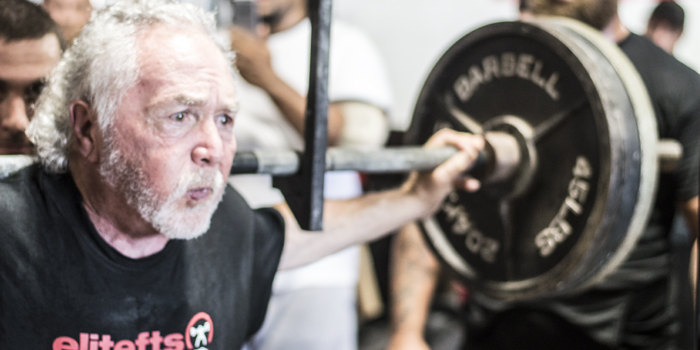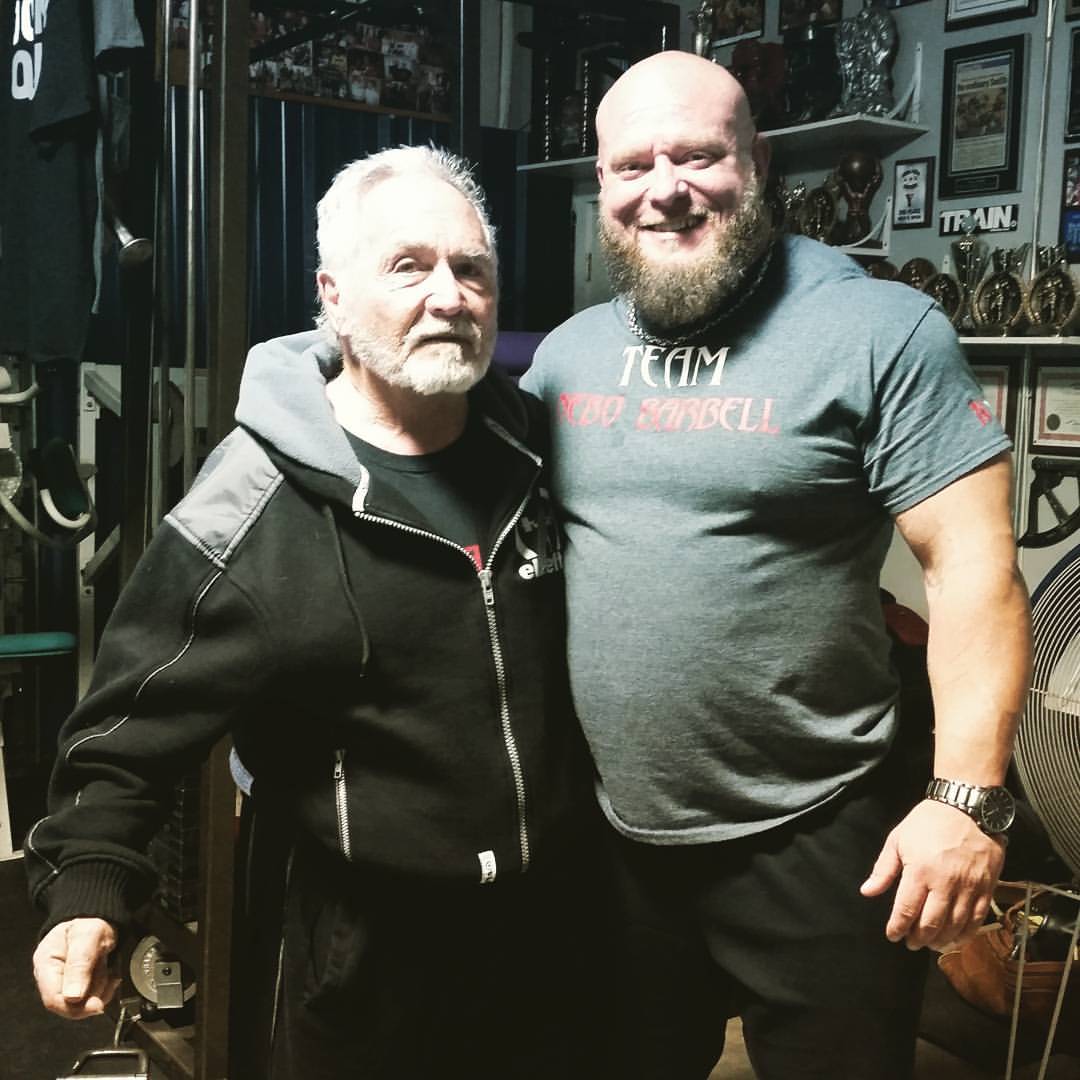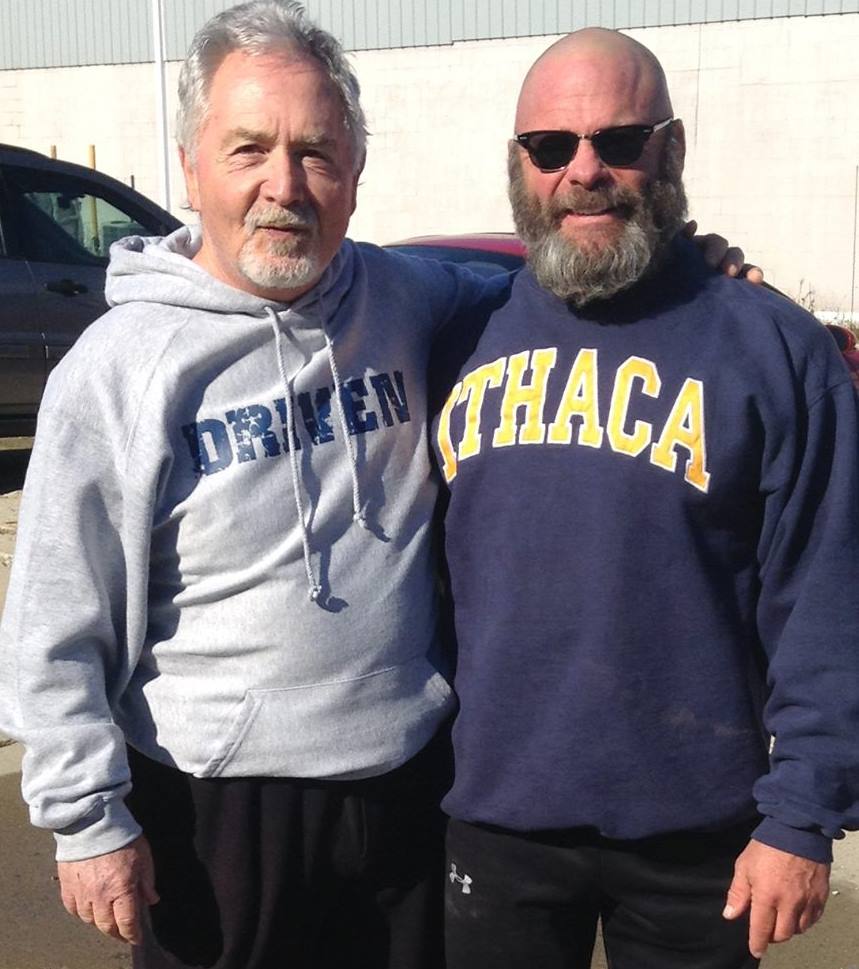
On May 31, 2013 elitefts published my article "The Long and Winding Road." At that time, I had quintuple bypass heart surgery and had just started cardiac rehab. I was a wreck. I wasn't allowed to train until I completed cardiac rehab. I was apprehensive and a little afraid as to what was to become of me. I was, as I said in the article, looking up a long and winding road that seemed all uphill and full of pot holes. Little did I know how true that statement was.
I was fearful of ever regaining strength again, becoming sedentary, gaining weight, and becoming a mental basket case. I had seen this happen to some of my peers after heart surgery and I didn't want it to happen to me. My wife and my family advocated taking it easy and leaving powerlifting as a fond memory. That, I refused to do. Powerlifting, in the short time in which I had participated, had become part of who I was and whether I ever compete again, always will be. I talked with my friend and mentor, Donnie Thompson, who assured me that I would return to the platform again stronger than I had ever been. I didn't know if those were words of encouragement, a platitude, or truth. I took them as both encouragement and truth. I deeply and sincerely wanted it to be true. What the hell am I going to do?
I made a deal with my cardiologist, my family and myself. I was going to go for it. I would go up the long and winding road back to the platform but do it in such a way as to make everyone happy. The deal I made was to start training myself as if I had never lifted weights before and as in Starting Strength, begin with just the bar and go very gradually from there. After some additional minor surgery in early July, I was allowed to begin training on July 29th, 2013. I had a goal to compete in a meet in November. Ambitious, but doable if I carefully followed my plan. I did follow my plan and progressed faster than I thought. By October I felt I was regaining some strength. I envisioned a storybook return to the platform in November, setting PR's and breaking records. Dumbass! I was believing my own hype!
RELATED: The Long and Winding Road
I did participate in the November meet. I did respectably, maybe better, considering I was only nine months post-surgery. But the storybook comeback was not to be. In retrospect, I had not given myself enough time to get as strong as I needed to be. I wanted it, but it was too soon. I now realize the telltale signs before the meet. While I could squat reasonably well, my bench was woefully lacking. The lack of overwhelming success made me want it more. I was determined to kick ass in a meet in May. I was giving myself time to get better, follow my program, and gain the necessary strength.
About a month before the meet, the sky fell in. I got hurt — very badly. I was finally getting a lot stronger and lifting some heavy stuff. I have a shoulder that my orthopedist wants to replace because it is so arthritic. He won't replace it, however, while I'm still competing. I hope that lasts a long time. Anyhow, while deadlifting a max weight I felt a terrible pain in the shoulder. After a day or two it got worse, with pain radiating down my arm, under my arm, and in my lat area. After a few more days, it seemed to get even worse. I thought I had ruptured a disk in my neck because the symptoms were similar as had happened before on the other side. Even worse, I considered I might have a brachial plexus injury.
I called my orthopedist who got me in the next day, as I am a preferred customer (they even named a room for me in their new building ). After an examination and a series of x-rays, he told me it was neither a ruptured disk nor a brachial plexus injury.
"You have just hurt your shitty shoulder bad."
There goes the meet in May. DAMN. In time , with regular massage therapy and gentle stretching and exercise the shoulder got better (as good as a shitty arthritic shoulder can get ). A little problem lingered: I had no grip. NONE. I could hardly hold a pen to write. That seemed to persist forever. I worked with it and little by little by little it seemed to get better. It's still not 100%. Some days I can hold a respectable deadlift, other days not. It seems to depend on the thickness of the bar.
I next planned my dramatic comeback for March 2015 at an IPA meet in Columbus. I planned to lift, visit elitefts and an old friend from years ago. Another freaking bump in the road. In February, my wife got very ill, enough for a week in the hospital. I brought her home in a very weakened condition, barely able to ambulate. In fact, she fell on three separate occasions after which she was confined to bed and required care 24/7. Thankfully, a home health care nurse, a physical therapist, and an occupational therapist came regularly. They, together with her daughter, gave me some breaks during the day and I was able to do some training. She seemed to get better every day in March.
However, on April 1st she became very disoriented and lost touch with reality. I took her back to the hospital and that night she had a seizure that rendered her unconscious. Her daughter, her sister and I were at the hospital everyday in shifts. Her diagnosis changed from time to time but she remained unconscious. Through it all, I lost track of the days. I only know that on the morning I got a fat newspaper, traffic was not as bad on the way to the hospital. Through it all, I trained, albeit on a very irregular schedule. It was the only thing that kept me nearly sane; that and my dog Samson (Sammy). She was moved to Charlotte for more sophisticated treatment. Nothing worked and we were informed the cumulative effect of the continuous seizures had destroyed her brain. On May 13, 2015 she passed away. I say all this , not to elicit sympathy, but to point out facts of life. We all experience them, we all have our stories. It is how we deal with them that determines who we are. How do you deal with the loss of a spouse of 23 years?
RELATED: The Ups and Downs of Competition
All I could do was put one foot in front of the other for a time. I proceeded in no real direction. Training wasn't fun but I persisted. One day I called my friend Harry Selkow and told him of my situation. Rather than sympathy or platitudes, Harry hollered at me, damn him. He got my attention. He made me focus. He pointed me in a direction. At the time I was screwed up and in a funk. I had stopped keeping a record of my training and posted this in my training log:
What a clusterfuck of circumstances. Brenda's illness and subsequent death have left me directionless for a while. I just don't care. I go in one direction then another. Now it's just Sammy and me. I am beginning to find some direction. I need to get stronger, to feel relevant again. Training has been so-so, not really stronger but going through the motions. Hand still has no grip. Bench press still not good. Need to get stronger, lose weight, strengthen my hand and improve bench. Easier said than done but must take steps in that direction.
After talking with Harry, I began to gain focus. I began to get my act together emotionally. I took care of business and concentrated on my training. I set my sights on a meet on September 26. By the time this article is published, I will have taken the platform again after almost two years, a very long time at my age. I requested and received expert advice from Amy Wattles on my grip problem. I also got great advice from the PhD of Bench Press, Vincent Dizenzo. Teammates come through when you need them. I have navigated the long and winding road back to the platform from heart surgery. The bumps in the road have taken their toll.
Heartfelt thanks to all those who have helped — the rest of the road looms ahead.












First, I'm sorry for the loss of your wife. Thank you for sharing your journey with us, it is especially meaningful to those of us who struggle not just with training, but with what life brings.
As a 68 year old powerlifter, (though not competing since 2014) with all the nicks and dings (shoulder/knee issues) that come with the title, your articles are inspiring, and
informative. I for one would love to see you do a training log one EliteFTS. Not a criticism of EliteFTS, or other sites, but there isn't much in the way of strength training (especially powerlifting) information tailored for our age group, so I appreciate your articles.
Thanks again and be well,
Joe